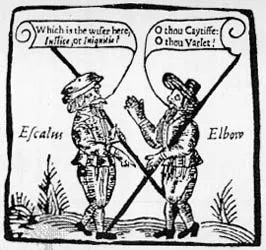Photo AI
Last Updated Sep 26, 2025
Character Analysis Simplified Revision Notes for A-Level AQA English Literature
Revision notes with simplified explanations to understand Character Analysis quickly and effectively.
398+ students studying
Character Analysis
Isabella
Overview
Isabella is a novice nun and sister to Claudio. She represents virtue and steadfastness in the play, embodying moral integrity and spiritual commitment. Her character is central to the themes of justice, morality, and the struggle between virtue and vice.

Key Moments in the Play
- Initial Plea (Act 1, Scene 4): Isabella is introduced as she prepares to join a convent, establishing her virtue and commitment to a religious life.
- Appeal to Angelo (Act 2, Scene 2): She pleads for her brother Claudio's life, showcasing her eloquence and moral conviction.
- Angelo's Proposition (Act 2, Scene 4): Angelo propositions Isabella, testing her virtue and putting her in a moral dilemma.
- The Prison Scene (Act 3, Scene 1): Isabella informs Claudio of Angelo's demands, highlighting her moral steadfastness.
- Final Scene (Act 5, Scene 1): Isabella's confrontation with Angelo and her reaction to the Duke's proposal reflects her unwavering moral integrity.
Key Themes
- Virtue and Vice: Isabella embodies virtue, while her interactions with Angelo highlight the conflict between virtue and vice.
- Justice and Mercy: Isabella's pleas for Claudio and her reaction to Angelo's proposition explore the balance between justice and mercy.
- Power and Corruption: Her character illustrates the corrupting influence of power as seen in Angelo's abuse of authority.
Key Quotes
"Better it were a brother died at once, / Than that a sister, by redeeming him, / Should die forever." (Act 2, Scene 4)
- Isabella prioritizes spiritual over physical life, showcasing her strong moral and religious convictions.
- This quote underscores the play's central theme of moral integrity versus self-preservation.
"O, it is excellent / To have a giant's strength, but it is tyrannous / To use it like a giant." (Act 2, Scene 2)
- She criticizes the misuse of power, particularly Angelo's authoritarian approach.
- This quote illustrates her understanding of justice and the ethical use of power.
"I'll to my brother: / Though he hath fall'n by prompture of the blood, / Yet hath he in him such a mind of honor / That had he twenty heads to tender down / On twenty bloody blocks, he'd yield them up, / Before his sister should her body stoop / To such abhorr'd pollution." (Act 2, Scene 4)
- Isabella emphasizes Claudio's honour and her commitment to preserving her virtue.
- This reveals her unwavering stance on moral and spiritual integrity, even in the face of familial duty.
Claudio
Overview

Claudio is a central character in Shakespeare's "Measure for Measure," whose actions and fate drive much of the play's moral and thematic exploration. As a young nobleman, Claudio is sentenced to death by Angelo for impregnating his betrothed, Juliet, before their marriage. His predicament highlights the rigid enforcement of Vienna's moral laws and sets the stage for the play's exploration of justice, mercy, and hypocrisy.
Key Moments in the Play
- Arrest and Sentencing (Act 1, Scene 2): Claudio is arrested for fornication after impregnating Juliet. His public shaming and harsh punishment of Angelo set the play's moral and judicial tone.
- Appeal to Isabella (Act 1, Scene 4)****: Claudio's friend Lucio persuades Isabella, Claudio's sister, to plead for his life. This appeal sets up the central conflict involving Angelo's lust and Isabella's virtue.
- Prison Scene (Act 3, Scene 1): Claudio faces the reality of his impending execution. He initially supports Isabella's decision to maintain her chastity but later begs her to save his life by any means, revealing his human fear of death.
Key Themes
- Justice and Mercy: Claudio's punishment for a seemingly minor transgression underscores the play's exploration of the balance between justice and mercy. His plight calls into question the fairness of Vienna's laws and Angelo's strict enforcement.
- Hypocrisy**:** Claudio's situation exposes the hypocrisy of those in power, particularly Angelo, who condemns Claudio while harbouring illicit desires himself. This theme is crucial in critiquing moral absolutism and the abuse of authority.
- Human Frailty: Claudio's fear of death and desperate plea to Isabella highlight his vulnerability and the universal fear of mortality. His character illustrates the complexities of human nature, caught between moral principles and instinctual fears.
Key Quotes
"Thus can the demigod, Authority, / Make us pay down for our offense by weight / The words of heaven: on whom it will, it will; / On whom it will not, so; yet still 'tis just." (Act 1, Scene 2)
- Claudio protests the societal structures which bestow "Authority" on such individuals and allow capricious human actors to enforce heavenly decrees.
- He highlights the flaws in the justice system, showing a cynical understanding of the partiality and imperfection in human-administered justice.
"If I must die, / I will encounter darkness as a bride, / And hug it in mine arms." (Act 3, Scene 1)
- Initially, Claudio resolves to face death bravely, expressing a poetic acceptance of his fate.
- This quote underscores Claudio's inner conflict and the human fear of death, revealing his ultimate fragility and desperation when he later pleads for his life.
"Death is a fearful thing." (Act 3, Scene 1)
- This brief but powerful admission captures Claudio's dread of death, a central theme that drives his actions and pleas to Isabella.
- Claudio's fear underscores the play's meditation on mortality and the human instinct for self-preservation, even at the cost of moral compromise.
The Duke
Overview

The Duke, also known as Duke Vincentio, is the ruler of Vienna in Shakespeare's Measure for Measure. He is a complex character who orchestrates much of the play's action through his elaborate disguise as a friar. By temporarily abdicating his authority and observing his subjects incognito, the Duke aims to restore moral order in Vienna and reveal the true nature of those around him. His actions raise questions about justice, mercy, and the effectiveness of authority.
Key Moments in the Play
- Delegating Authority to Angelo (Act 1, Scene 1): The Duke leaves Vienna under the strict rule of Angelo, claiming he wants to restore moral order without appearing tyrannical.
- Disguising as a Friar (Act 1, Scene 3): He disguises himself as Friar Lodowick to observe how Angelo governs and to manipulate events from behind the scenes.
- Intervening in Isabella's Plea (Act 2, Scene 3)****: The Duke listens to Isabella's plea for her brother Claudio's life and begins to craft a plan to expose Angelo's hypocrisy.
- Revealing his Identity (Act 5, Scene 1): The Duke reveals his true identity in a dramatic public scene, orchestrating justice and mercy for the play's resolution.
Key Themes
- Justice and Mercy: The Duke's actions highlight the balance between justice and mercy, demonstrating that rigid enforcement of the law must be tempered with compassion.
- Authority and Disguise: His use of disguise raises questions about the nature of authority and the moral complexities of governing.
- Hypocrisy**:** By exposing Angelo's hypocrisy, the Duke illustrates the dangers of moral absolutism and the need for a more nuanced approach to justice.
Key Quotes
"I love the people, / But do not like to stage me to their eyes." (Act 1, Scene 1)
- The Duke explains his decision to leave Angelo in charge, expressing his preference for genuine governance over public displays of power.
- This quote reflects the Duke's introspective nature and his belief in the importance of effective rule over mere appearances.
"Haste still pays haste, and leisure answers leisure; / Like doth quit like, and Measure still for Measure." (Act 5, Scene 1)
- The Duke comments on the concept of justice, emphasizing that people receive consequences that match their actions.
- This quote underscores the play's central theme of justice and retribution, encapsulated in the title "Measure for Measure."
"We have strict statutes and most biting laws, / The needful bits and curbs to headstrong weeds, / Which for this fourteen years we have let slip." (Act 1, Scene 3)
- The Duke reflects on the state of Vienna's laws and his decision to enforce them more strictly through Angelo.
- This quote highlights the Duke's recognition of the need for balance in law enforcement, setting the stage for the play's exploration of justice and governance.
Angelo
Overview

Angelo is the primary antagonist in Measure for Measure. As the strict, self-righteous deputy left in charge of Vienna by Duke Vincentio, Angelo is tasked with restoring moral order. Despite his outward appearance of virtue and piety, he is deeply hypocritical, abusing his power and failing to live up to the rigid standards he imposes on others. His actions expose the complexities of morality, justice, and human frailty.
Key Moments in the Play
- Given Authority (Act 1, Scene 1): Angelo is appointed by Duke Vincentio to enforce Vienna's neglected laws, a task he accepts with apparent humility and resolve.
- Sentencing Claudio (Act 1, Scene 2): Angelo condemns Claudio to death for impregnating Juliet before marriage, demonstrating his strict and unforgiving interpretation of the law.
- Tempting Isabella (Act 2, Scene 4): Angelo is overcome by lust for Isabella and propositions her, offering to spare Claudio's life in exchange for her virginity, revealing his hypocrisy and moral corruption.
- Failing to Honour the Deal (Act 4, Scene 4): Despite his promise to Isabella, Angelo orders Claudio's execution, showing his ruthless and deceitful nature.
- Public Reckoning (Act 5, Scene 1): Angelo's misdeeds are exposed by the Duke, and he is forced to confront the consequences of his actions.
Key Themes
-
Hypocrisy**:** Angelo's strict enforcement of moral laws is contrasted by his immoral actions, highlighting the dangers of hypocritical leadership.
-
Power and Corruption: His abuse of power illustrates how authority can corrupt and how those in power can exploit their position for personal gain.
-
Justice and Mercy: Angelo's rigid application of justice is shown to be flawed, emphasizing the need for compassion and mercy in governance.
Key Quotes
"When I that censure him do so offend, / Let mine own judgment pattern out my death, / And nothing come in partial." (Act 2, Scene 1)
- Angelo asserts that he should be judged by the same harsh standards he applies to others, an ironic statement given his later actions.
- This quote reveals Angelo's initial self-righteousness and foreshadows his eventual downfall due to his hypocritical behaviour.
"O cunning enemy, that, to catch a saint, / With saints dost bait thy hook!" (Act 2, Scene 2)
- Angelo laments his uncontrollable lust for Isabella, portraying his internal conflict and the struggle between his public virtue and private desires.
- This quote highlights the theme of appearance versus reality and Angelo's failure to reconcile his outward piety with his inner corruption.
"Say what you can, my false o'erweighs your true." (Act 2, Scene 4)
- Angelo acknowledges that his reputation and power will protect him from Isabella's accusations, demonstrating his awareness of his moral failings and his reliance on social status to shield him.
- This quote underscores Angelo's manipulation of power and the societal structures that enable his deceit and corruption.
Elbow
Overview

Elbow is a minor character in Shakespeare's Measure for Measure. As a constable, Elbow is tasked with enforcing Vienna's strict laws, particularly those related to sexual conduct. Despite his position, he is portrayed as somewhat bumbling and unintelligent, often speaking in malapropisms (using incorrect words that sound similar to the right ones). Elbow serves as a comedic foil, highlighting the incompetence and absurdity of law enforcement in Vienna.
Key Moments in the Play
- Arresting Pompey and Froth (Act 2, Scene 1): Elbow brings Pompey and Froth before Angelo and Escalus, accusing them of running a brothel and engaging in immoral activities. His confused speech and inability to present the charges make this scene highly comedic.
- Interaction with Escalus (Act 2, Scene 1): Elbow's exchanges with Escalus further illustrate his incompetence. Escalus tries to understand Elbow's accusations, but Elbow's muddled language and logic create confusion and amusement.
- Further Comic Relief (Act 3, Scene 2): Elbow continues to provide comic relief, interacting with Pompey and other characters, showcasing the disparity between the law's intentions and its execution.
Key Themes
- Incompetence of Authority: Elbow's character exemplifies the incompetence and inefficiency within Vienna's law enforcement. His inability to articulate his thoughts or effectively carry out his duties reflects the broader theme of flawed authority.
- Comedy and Satire: Through Elbow, Shakespeare injects humour and satire into the play, using his malapropisms and bumbling nature to critique the serious themes of justice and morality.
Key Quotes
"If it please your honour, I am the poor duke's constable, and my name is Elbow: I do lean upon justice, sir, and do bring in here before your good honour two notorious benefactors." (Act 2, Scene 1)
- Elbow mistakenly refers to Pompey and Froth as "benefactors" instead of "malefactors," demonstrating his frequent misuse of words.
- This quote highlights Elbow's comedic role and his lack of understanding, serving as a critique of the law's enforcers.
"First, an it like you, the house is a respected house; next, this is a respected fellow; and his mistress is a respected woman." (Act 2, Scene 1)
- Elbow's convoluted speech while trying to present his case against Pompey and Froth showcases his inability to communicate effectively.
- This quote underscores the incompetence within the justice system, as represented by Elbow's character.
500K+ Students Use These Powerful Tools to Master Character Analysis For their A-Level Exams.
Enhance your understanding with flashcards, quizzes, and exams—designed to help you grasp key concepts, reinforce learning, and master any topic with confidence!
60 flashcards
Flashcards on Character Analysis
Revise key concepts with interactive flashcards.
Try English Literature Flashcards6 quizzes
Quizzes on Character Analysis
Test your knowledge with fun and engaging quizzes.
Try English Literature Quizzes15 questions
Exam questions on Character Analysis
Boost your confidence with real exam questions.
Try English Literature Questions27 exams created
Exam Builder on Character Analysis
Create custom exams across topics for better practice!
Try English Literature exam builder21 papers
Past Papers on Character Analysis
Practice past papers to reinforce exam experience.
Try English Literature Past PapersOther Revision Notes related to Character Analysis you should explore
Discover More Revision Notes Related to Character Analysis to Deepen Your Understanding and Improve Your Mastery
